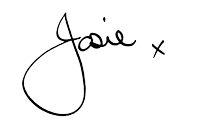Mental Resilience
It can happen to any of us: we don’t get done what we hoped to get done, then we feel stressed, distressed or guilty about it.
It’s time to let that pattern go. It’s simply not helpful.
We can build resilience around expectations, with a little mental training. And it may support and enable us in numerous ways.
Have you ever:
- Set out to do a certain habit (exercise, writing, eating, meditation) and then didn’t do it as planned. You felt guilty, disappointed in yourself, or stressed about it.
- Had a list of things you needed to get done, and then didn’t get most of them done. This added to your stress.
- Planned to work on a project, or do some focussed writing and then… procrastinated. Again, you felt guilty, disappointed or stressed.
- Hoped to change your patterns, like eating or how you talk to others or how you practice mindfulness. Then things didn’t work out and you felt disappointed.
There are thousands of variations and examples, but the main theme is that things didn’t go as you’d hoped, and that caused disappointment, guilt and stress.
Here’s the thing: there’s no problem with the failure to meet our expectations.
The real problem is the expectations – and the stress it causes when we don’t meet the expectations.
In all the examples above, there’s an ideal in our heads about how things should be, how we want to be. There’s nothing wrong with that – we all do this, often. The problem comes when we hold too tightly to the ideals/expectations. It causes difficulties: we feel let down, we feel anxiety, we feel anger or resentment at ourselves, we become unhappy.
This process of expectations and then not meeting them leads to less happiness. It can happen over and over, throughout each day. Have you noticed people constantly doing this to themselves.
This can lead to stress, unhappiness, feeling overwhelmed, feeling like we can’t change, and a lack of trust in ourselves. The real damage is it hurts everything we want to do, making it more likely that we simply give up, because we don’t trust ourselves.
This is the problem.
The answer is to hold less tightly to our ideals. Become aware of our expectations (of ourselves, and also of others), and very loosely hold them.
What would happen if you tossed your expectations out? What would happen if instead you simply made commitments instead of promises?
You may actually enjoy what happens. You may even appreciate, accept and respect yourself as you are, not as you wish you’d be.
Of course, endeavour to do good, out of this appreciation and respect for yourself and others. And when you don’t meet those expectations, toss them out and appreciate who you are, and what you’ve actually done. Appreciate reality.
Here’s a prescription for you to use freely:
- Set an intention to appreciate and respect yourself by exercising regularly, eating better, meditating, being kind to others, and doing your best work in the world. Set the intention out of genuine devotion, then do the best you can.
- Whatever you do, notice your expectations, toss them into the sea. Appreciate what you actually do, appreciate the moment and yourself no matter what. Let go of the useless guilt and stress and self-criticism.
- See what held you back from meeting your intention. Make an intentional change in your environment so that it won’t keep holding you back. Set another intention, out of genuine commitment, but don’t cling to it. Repeat, over and over.
By letting go of these expectations, we can let go of our difficulties and actually be at peace. We may even find contentment. We may even ‘like’ ourselves. And this leads to an incredible happiness with the world and with ourselves that sustainably fills our heart.
With love,

How To Support A Loved One With Cancer
In March I filed a segment on channel 7’s The House Of Wellness, I am so excited to share it with you!
With the Australian Cancer Council predicting that 134,000 new cases of cancer will be diagnosed this year, most of us know someone affected by this insidious disease. So how do we best offer our support? As a two time cancer survivor I share my tips….
Enlivened Teams, Resilient Workplaces
Whether it is a critical workplace event or project, dealing with the constant and rapid pace of change, or simply responding to the day-to-day challenging situations that we all encounter, personal resilience is the determining factor in who fails and who succeeds.
Build a resilient workplace by training managers in how to cultivate their own and others’ resilience so they know that when the going gets tough, they can lead with true grit.
If you are interested in finding out more, click here to register your interest.
You Are Not Your Brain
Want to see how you stack on the Resilience Scale? Sign up and take my complimentary self assessment here.



